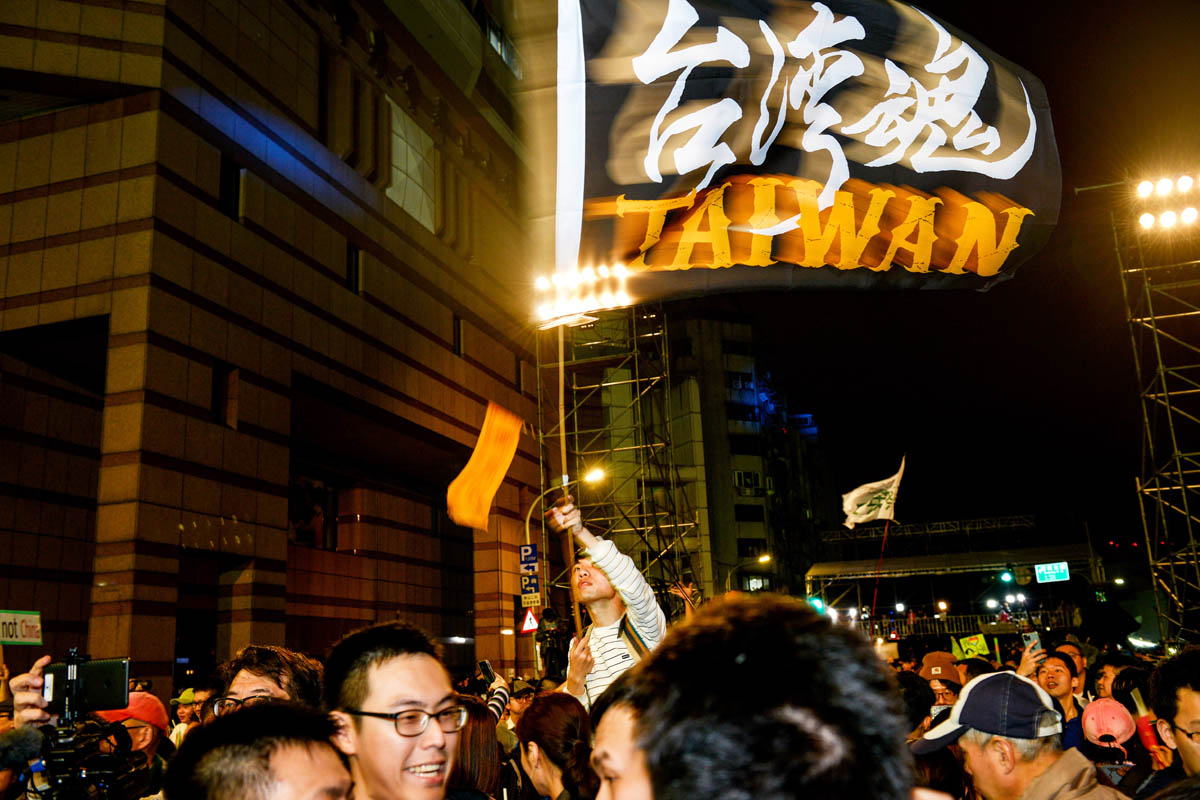Putin plays with f ire in his new doctrine
Of late Vladimir Putin has shifted Russia’s nuclear doctrine to a more directly and openly retaliatory posture in response to any attack by Ukraine or any NATO country using longer-range US missiles.
The KMT fled there after losing the civil war in 1949, but since the decades of one-party rule ended, it has increasingly emphasised its capacity to manage good relations with Beijing.

Supporters celebrate the poll victory of Taiwan's President Tsai Ing-wen and chant slogans in support of pro-democracy protesters in Hong Kong, outside the Democratic Progressive Party's headquarters as results came in for the general election in Taipei on January 11, 2020. President Tsai Ing-wen declared victory in Taiwan's election on January 11 as votes were being counted after an election battle dominated by the democratic island's fraught relationship with China. (Chris STOWERS / AFP)
Atiny country has rebuffed a Big Power. Saturday’s presidential election in Taiwan and the extraordinary comeback of President Tsai Ing-wen for a second term might arguably chasten China’s President-for-life, Xi Jinping , most importantly after the mortally violent muscle-flexing in Hong Kong. Through the election, Taiwan has reaffirmed the victory of the democratic engagement… in refreshing contrast to Hong Kong which, at another remove, bears witness to the suppression of democratic certitudes.
Ms Tsai’s Democratic Progressive Party (DPP) has trounced her main rival, Han Kuo-yu of the Kuomintang (KMT), and in a broader sense Beijing. The victory must seem to be still more significant not the least because two years ago the DPP was humiliated in the midterm local elections. Indeed, her prospects of re-election looked so dim that senior party leaders had urged her not to contest again. Yet, she has now scored a huge lead over her main challenger. Her spectacular comeback is, therefore, a critical facet of her victory.
This is the cardinal message that the DPP has conveyed to China which will not welcome the news. At this juncture, the comity of nations is rather unlikely to readily concur with Beijing’s thesis that there is “only one China ruled by the Communist Party”. Taiwan’s re-election of a democratic leader runs counter to the perception of a monolithic leadership in defiance of frontiers.
Advertisement
It would be presumptuous to expect the “international community to continue adhering to the One China principle”. At another remove, Tsai’s DPP has campaigned on the slogan: “Resist China, Defend Taiwan”. As it turns out, the outcome of the 2018 mayoral contest was a wake-up call. The impact of controversial pension reforms which fuelled that defeat has largely been absorbed. Nay more, Taiwan’s economy is improving, with a marked increase in wages and high employment.
Ironically enough, the performance of Han Kuo-yu as the KMT’s mayor of Kaohsiung is said to have impaired the party’s record of competence. While Hong Kong has been China’s protectorate since 1997, Taiwan has been what they call a “self-ruled island”. It has never been under the jurisdiction of the People’s Republic of China. Small wonder that Beijing regards it as a renegade province which must return to the fold.
The KMT fled there after losing the civil war in 1949, but since the decades of one-party rule ended, it has increasingly emphasised its capacity to manage good relations with Beijing. President Xi’s latest speech saying Taiwan’s unification with China was inevitable, and that Beijing reserved the right to use military force to achieve the same has overwhelmingly been ignored by the electorate.
Advertisement